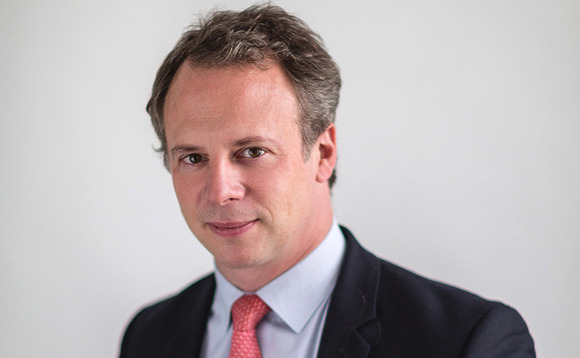
GP Profile: Omnes Capital

With a busy fundraising pipeline, Omnes Capital is making inroads towards becoming a large, multi-strategy investor. Francesca Veronesi catches up with managing partner Benjamin Arm
The recent close of Omnes Mezzanis 3 on €100m in July adds to Omnes Capital's ongoing fundraising spree. Omnes Expansion 3, with a €120m target, held an interim close on €72m in Q4 2018 and has now collected €105m, while venture fund Omnes Real Tech, having a €100-150m target, held a first close in March this year and has now collected €97m. The next long-term fundraising objectives will be the launch of the energy-focused Capenergie 4 fund in Q3 this year, with a €500m target, and the fifth Croissance mid-cap vehicle in H2 2020 with a target of around €350m.
Once mostly known for its vanilla private equity investments, Omnes has increasingly diversified its activity. Benjamin Arm, managing partner and head of the buyout and growth capital activity, explains the firm's origins within the banking world encouraged this multi-strategy development: "The GP started off as the PE branch of French bank Crédit Agricole in 1999 and our owner needed private equity solutions for companies with which it was in business." Kicking off with expansion, buyout and venture transactions, the firm diversified into private debt (2002), renewable energy (2006), expansion (2007), co-investment (2007) and infrastructure green building (2016).
Today, out of the firm's €3.6bn AUM, €1.3bn is invested in infrastructure (renewable energy and green building), €800m in expansion and buyouts deals, €700m in venture and €350m in co-investment.
Third-party money
Crédit Agricole merged with its peer, LCL, in 2004 and became one of the biggest banking conglomerates in France. As became de rigueur in the French captive space following the financial crisis, the Crédit Agricole PE branch span out in 2012 with the help of Coller Capital and rebranded as Omnes, eventually becoming wholly owned by its employees. Its fund Omnes Croissance 4, closed in Q1 2017 on €210m, was the GP's first fund raised with the support of third parties.
Asked what attracts third-party LPs to Omnes, Arm says the GP allows investors to access the French small to lower-mid-market via a large investor, with dedicated back-office, compliance, financial reporting and client servicing functions supporting the different investment strategies. GPs targeting SMEs in France are often smaller teams than Omnes, Arm adds. With offices in Paris, Brussels and Zurich, the firm employs 66 people.
The vast majority of the fund's LPs are currently France-based, but Omnes is hoping to change this. "We are very much interested in attracting a greater number of foreign LPs in our funds, as there aren't many French players that can provide big tickets. Raising funds of more than €300m can take a long time when relying on French LPs exclusively," says Arm.
Despite its push towards multi-strategy growth, Omnes has shied away from consolidating the sector since its spin-out from Crédit Agricole. "We have recently reflected on external diversification options, but so far we have not been convinced by any external opportunity," Arm says, adding that the process involves significant complexity: "First, when assimilating a new team, the question remains: will LPs continue backing the next-generation fund, now that the governance has changed? Moreover, governance issues are probably the trickiest part to deal with, as some managers really prefer to be independent rather than part of a group." Nonetheless, the asset management model is definitely becoming more and more established, Arm recognises.
SME focus
Arm's buyout and growth capital activity team targets companies with an EV in the €10-40m bracket via the Expansion vehicles, and companies valued at €40-180m via the Croissance funds. Sourcing primary transactions is vital to not pay excessive entry multiples – two thirds of the deals made by Croissance 4 fall into that category. Arm underlines the GP is "adamant about paying a correct price for businesses and not leverage deals excessively – on average, equity amounts to 7x EBITDA and leverage to around 3x in our deals, regardless of the current environment that tends to push prices up."

The GP does broadly define itself as a generalist investor, though the growth and buyout teams prefer to back the B2C and B2B services and industrial sectors. Arm recognises that the trend of sector-specialism has affected most generalist French GPs, which today prefer to invest in a handful of sectors, if not sub-sectors. "However, being a PE house investing mostly in one country, it is vital for Omnes to not make the pool of companies to choose from too small and keep options open."
Some of Croissance 4's most recent deals include Belgium-based consulting firm Intys and France-based Spherea, a simulations and electronic test specialist that the fund invested in alongside Andera Partners. Prior to these investments, the vehicle backed France-based Captain Tortue, a retailer of women's ready-to-wear clothing, investing alongside BIP Capital Partners in Q4 2018.
In terms of exits, Expansion 3 partially exited furniture rental business Camerus Group in May, while new investors BPI France and Siparex Mezzanine acquired minority stakes. The divestment from Circet, a domestic telecommunications network service provider, is one of the GP's most resounding successes of recent years: the 2017 sale generated a 2.6x money multiple and a net IRR of 95%. Omnes reacquired a minority stake in Circet, which was then bought by Advent International in 2018. Last year's sale generated a money multiple of 2.3x and net IRR of 103%. Prior to the Circet exit, Omnes sold the private clinic operator Vivalto Santé in 2016 to a group of investors led by BPI France and Mubadala. The sale generated a 3.3x money multiple for Omnes.

Key team members
Benjamin Arm, managing partner, is in charge of buyout and growth capital activity. He joined Omnes in 2006 as an associate and was then promoted to director in 2013. Arm started his career at Arthur Andersen in 2001, after which he moved to the transaction advisory services department of EY in 2002. Four years later, he started working for Crédit Agricole as an investment manager.
Fabien Prévost has been the CEO of Omnes Capital since 2004, having joined the firm in 2000 to set up the venture division. In the late 1980s and early 1990s, he worked in consultancy, first for Boston Consulting Group and then for Financière Indosuez, specialising in M&A transactions. Prevost then founded Proxidis in 1992, a specialised distribution group that floated on the Paris stock exchange in 1996.
Martine Sessin-Caracci, managing partner, is in charge of investor relations and communication at Omnes. She has been part of the firm since 2005, when she joined as a communications director, but then extended her scope of responsibility for the IR team in 2011. Sessin-Caracci first worked at Arthur Andersen as an auditor and joined CPR Bank in 1989, where she eventually became head of financial communications. In 2004, she was appointed communications director at AGF (which then became Allianz France in 2009).
Latest News
Stonehage Fleming raises USD 130m for largest fund to date, eyes 2024 programme
Multi-family office has seen strong appetite, with investor base growing since 2016 to more than 90 family offices, Meiping Yap told Unquote
Permira to take Ergomed private for GBP 703m
Sponsor deploys Permira VIII to ride new wave of take-privates; Blackstone commits GBP 200m in financing for UK-based CRO
Partners Group to release IMs for Civica sale in mid-September
Sponsor acquired the public software group in July 2017 via the same-year vintage Partners Group Global Value 2017
Change of mind: Sponsors take to de-listing their own assets
EQT and Cinven seen as bellweather for funds to reassess options for listed assets trading underwater








